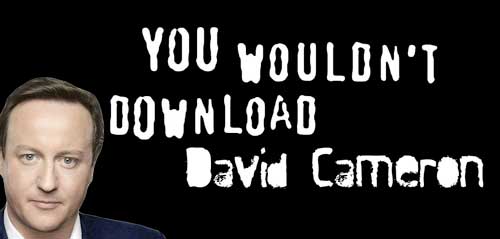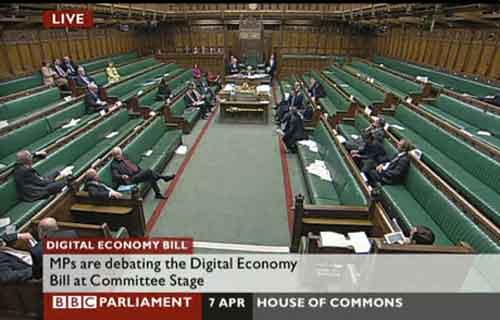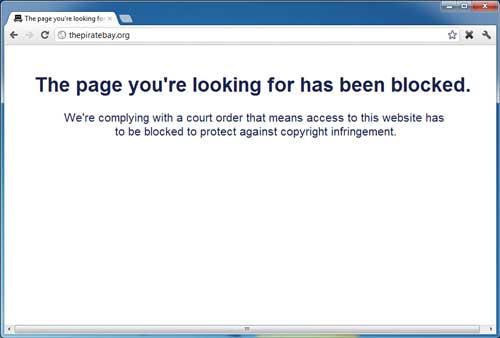Governments and the Internet: Part 2 of a 10 ten part trilogy
Greetings one and all, and welcome back to Part 2 of an epic love story in the making; Governments and the Internet. We left our two lovebirds at a pivotal moment on a park bench watching a beautiful sunset, where the EU was concerned for our privacy by introducing something which will save us all from those naughty people who dare to use cookies for traffic tracking and advertising.
In this second part, where the Internet cheats on Governments with Hank and Chad begins to develop feelings for Cherrie, in perhaps a complete 180 from the EU’s desire to protect privacy, we look at legislation which has been pushed through in various shapes and forms, which will enforce blocking of web sites and monitoring of what you do in western countries.
Now the reason this all started, was Piracy, and not the good kind like what those lovable Somalians do.

The examples of such legislation are a great many, all with fantastic acronyms, the SOPA anti-piracy bill in the US (The Americans then went ahead and signed off the Cyber Intelligence Sharing and Protection Act or CISPA, which was even worse arguably.), the Anti-Counterfeiting Trade Agreement or ACTA, which was an agreement between most western countries, and of course in the UK, the Digital Economy Act which was rushed through at the end of the last government, all seek to save profits, I mean intellectual property rights of those who have been hard done by those naughty pirates who share everything for free. The b*stards.
The common theme among these law type things, hidden among the very big words which lawyers like to use, many of which they just look up in a Thesaurus to find the biggest word possible to use instead of language that anyone can understand, was that that private organisations can share with governments or indeed other private organisations private information sent and received by yourselves in the name of anti-terrorism or other reasons and can also block any content which either public or private bodies would find objectionable.
This is mainly in the realm of the good ol’ USA, whose states are also trying to ban abortions because they make God cry, but CISPA, ACTA, RESPECT, BYOB, RSPCA etc. has far wider reaching implications, given a large proportion of content and services stem from the US. It also raises questions about how much influence the corporations have over politics in general.
Now have a look at this video, which featured various artists in support of the file sharing website, MegaUpload last year;
OK, aside from the content advertising the MegaUpload site which is about as interesting as watching a dead fly, the majority of people would probably agree that it seems fairly harmless.
How does your opinion change, when you learn that Universal Music got this removed from the YouTube service on copyright grounds. Even though there was f*ck all copyrighted material from Universal contained within the video. Universal Music had then stated that it had a deal with YouTube to take down content even if it doesn’t infringe their rights. YouTube did put the video back on, and state that Universal didn’t in fact have the right. For details, the chaps at Wired.com had a pretty good take on it here.
It was not the first time Universal did such a thing either; They did it again in January of this year….
This unfortunate business served to illistrate two things;
- That Universal Music are f**king idiots
- But secondly and the more important thing, is that corporate censorship was indeed possible before any new legislation was enacted in the US.
Given that acts like CISPA would have the potential to bring down any site or material in addition to even more sharing of private information for “cybersecurity purposes” as described in the bill, even crap you never wrote on Facebook, even if there was no actionable cause to do so, it does leave it open to vast amounts of abuse from powerful companies with lots of money, who always act in the best interests of the common person on the street and would never use the information or power to say, destroy their rivals or sell you even more crap you don’t need based on information casually bought from other firms.
All this can only happen in America you might think.
Not so gentle reader.

These people work for us, you know.
At first, the Digital Economy Act in the UK, also had provisioned within it, sufficient methods for copyright holders to then seek out a court injunction to force ISPs to block access to online services that facilitate or may copyright infringement as well threaten national security, which could see legal restrictions on material the government don’t want us to see. . Just maybe with a little emphasis on the word “may” there. As you can see above, the debate was fierce and fighting broke out, such was the heat of the arguement.
In addition, there was a point where Ofcom, under direction of the government may instruct ISPs to introduce technical measures against its users, the extreme being disconnected altogether. So no more ordering Russian brides knock-off DVDs from Starbucks for you then, given that they have Wi-fi in their establishments and you could use their connection for naughty things too, which would make the company fall under this act for liability for example, but as no-one’s made up their minds about this sort of thing yet, we can’t say for certain.
Now the site blocking part was apparently dropped for the Digital Economy Act after a review last year probably owing to the fact that there are always techincal workarounds as dicovered by Ofcom after blowing £100,000 to find that out, but then the UK music industry body, BPI came bounding back full of joy and happiness under a different law and the High Court ruled against the most infamous of naughty sites, the Pirate Bay and now most UK Internet Service Providers like BT, Virgin Media and O2 now block access to that site.
You try and access that site, you’re likely to see something like this;

Arr, the ISPs prove to be a cruel mistress.
“Sites like The Pirate Bay destroy jobs in the UK and undermine investment in new British artists,” the British Phonographic Industry (BPI) said while rubbing themselves up and down with £50 notes probably. Now the thing is for the BPI as stated earlier, there are workarounds and you are still happily able to use the site if you wish via other means, all of which were widely published, and ridiculously the Pirate Bay reported record traffic levels as a result of the media coverage.
So on the face of it, the BPI achieved nothing. (Slow hand clap…)
But did you know that web site blocking in the UK is not that new on the fancy smartphone front. Siri, show me women wrestling in jelly. What? You can’t?
Due to mobile phone operators not wanting their paying customers to fap away while on a bus to adult content (it’s best done in your home of course), it appears a good number of other websites were caught up and could not be accessed via mobile devices. The Open Rights group covered this with a report with the LSE, which it did also highlight a few and which operators did block content, the funniest of which was the St Margarets Community Website, because Middlesex had the word sex in it.
What is worrying here, is the precedent that blocking these web sites have introduced.

Take care of yourself and each other.
(note the following was not written by Jerry Springer, we just thought it would be funny to have a final thought moment.)
Now piracy in itself is a massive issue, where the arguments for and against have been made countless times over. In this case, The Pirate Bay by it’s very nature has been asking for it for years, and the argument of free speech when it comes to getting hold of torrents online with the latest music and film releases (though why you’d want to at this point is beyond me as most of the recent content has been sh*t) is a pretty shallow one at that.
This is the second time a UK court has officially ordered a site hosting questionable content to be blocked by all accounts (Newzbin2 was the first last year), which all ISPs will be following.
The main issue, is the vague language used on most of the legislation listed here is far too open to abuse at any time, where information can be shared about us behind the scenes and content blocked at a drop of a bung in a paper bag left behind the toilets and it seems private entities are playing a big part in making this all come true.
Do we run the danger that the western world becomes no better than the likes of China, Iran and to some accounts now, India out of both fear and profit protection?
If we are to proceed down this dark and sinister road, which it looks certain that we do given that ordinary folk have no real influence over governments it seems in these matters, we should make damn well sure that innocent sites, content and people do not fall foul of this ruling nor indeed any site blocking technology that ISPs seek to introduce and that private companies then do not have the right to just go after any site which they state “may” contain copyrighted material or threats to “national security” either now or in the future.
Take care of yourself and each other.
Though if it all goes 1984 on us, I’m moving to either Vietnam, Brazil or an evil volcano lair.
So there you have it, the end of our love affair and possibly two wildly different points of view. On the one hand, protection of privacy of normal internet users, and on the other, personal information monitored and web sites can be blocked if someone with lots of cash not getting more cash gets upset and annoys their friend who happens to have law making powers.
Two things are certain;
- It kicks ass to be a big firm with lots of cash and lots of influence, don’t you think?
- When it comes to the Internet, governments don’t really do that well, do they? 🙂

Comments
Governments and the Internet: Part 2 of a 10 ten part trilogy — No Comments
HTML tags allowed in your comment: <a href="" title=""> <abbr title=""> <acronym title=""> <b> <blockquote cite=""> <cite> <code> <del datetime=""> <em> <i> <q cite=""> <s> <strike> <strong>